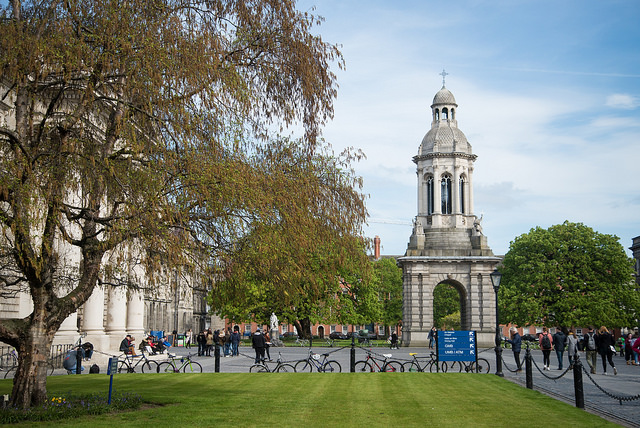Ryanair, Ireland’s largest airline, is to fund a new professor of entrepreneurship position in Trinity, costing the company €1.5 million over five years.
Funded by the company’s charity foundation, the person who fills the role will be responsible for overseeing business studies at undergraduate and postgraduate levels, and will begin next September.
In a press release, Prof Andrew Burke, Dean of the Trinity Business School, said: “We are delighted that a leading global entrepreneurial firm such as Ryanair with its exceptional record in transforming an industry and scaling a new business into a world leader is on board with Trinity Business School’s high growth globalisation strategy.”
He described the new position as “a major endorsement for our mission and underpins the scale of ambition intended for the Ryanair Professorship of Entrepreneurship”.
The partnership has been welcomed by Provost Patrick Prendergast, who described the announcement as a “new approach” to innovation and entrepreneurship. Indeed, since Prendergast’s provostship began, the College has put an increasing focus on entrepreneurship, with a new Chief Innovation and Enterprise Officer appointed in February and a proposed Innovation and Entrepreneurship Hub to be co-located in Trinity’s Business School.
Trinity is ranked as the leading university in Europe for producing entrepreneurs.
Trinity’s Business School has been rapidly expanding in recent years. In November 2013, the College announced plans for the construction of a new business school. Initially supposed to be completed in 2017, the new school will not open until April 2018 due to the rejection of the original building plans by Dublin City Council. This delay also saw the cost of the building increase from €70 million to €82.5 million.
Construction of the new school is well underway on the old site of Luce Hall. The new school will contain a 600-seat auditorium and a 140-seat lecture theatre as well as small classrooms, a roof garden and a dedicated innovation hub.
As state funding to higher education institutions continues to fall, Trinity’s turning to commercial bodies has been somewhat controversial, particularly the news in October 2016 that the College was committed to raising money through naming rights by hiring consultants to identify possible parts of campus that could be sold to donors in exchange for naming rights.
This year Trinity Business School announced of a new bachelors in business studies for undergraduates, with 75 students, of which 50 are international students, starting this academic year. Before the introduction of the course, students who wished to study business applied through the existing Business, Economics and Social Studies (BESS) course. This separation from BESS was to better attract international students to Trinity. Speaking to The University Times in September, Burke said that the emphasis of the course will be placed upon teaching business ethics, entrepreneurship and innovation.
Róisín Power and Sinéad Baker contributed reporting to this piece.







